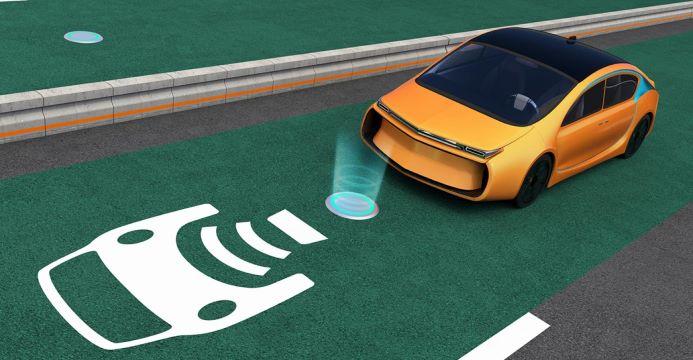

Wireless Charging, now a reality in Oslo
Norway’s capital city of Oslo will become the world’s first metropolitan area to install wireless, induction-based charging stations for its electric taxis, in a bid to make a zero-emission taxi system by as early as 2023. Norway wants to go even further than that, however it is mandating that all new cars sold in the country be all-electric by 2025.
To pull off the taxi charging system, Norway is tapping Finnish utilities firm Fortum, which is working with US company Momentum Dynamics and the municipal government of Oslo to install charging plates in the road that connect to energy receivers in the vehicles themselves.
The goal is to make it as easy as possible to charge electric taxis, as doing so now is difficult, time-consuming, and expensive. Using induction, which is more energy efficient, the taxis can be charged as they wait in what’s known as a taxi rank, or a slow-moving queue where cabs line up to wait for passengers.
Fortum in a statement described the system, “The project aims to install wireless charging using induction technology. Charging plates are installed in the ground where the taxi is parked and a receiver is installed in the taxi. This allows for charging up to 75 kilowatts. The project will be the first wireless fast-charging infrastructure for electric taxis anywhere in the world, and will also help the further development of wireless charging technology for all EV drivers.”
Fortum Charge & Drive has been working with the taxi industry to enable electrification of the taxi fleet. The greatest hurdle according to the company has been the infrastructure: It is too time consuming for taxi drivers to find a charger, plug in and then wait for the car to charge. The wireless fast-charging project aims to solve these issues and thereby reduce emissions from the taxis in Norway.
[related_post]
“The future is electric, and it is already here, right now. Wireless charging is a potential game changer,” said Sture Portvik, Oslo’s electro mobility manager, in a statement. “From 2023 onward, all taxis in Oslo will be zero emission. Together with the taxi industry we will make sure that the shift is as user friendly and efficient as possible. […]We are delighted to join forces with two of the industry’s most progressive players in this game-changing move to launch the world’s most ambitious plan for wireless charging of a taxi fleet.”
Currently, Norway now has the highest rate of electric vehicle ownership in the world, and it outpaces Germany as Europe’s fastest-growing electric car market. Last year, the country purchased a total of 46,143 new electric cars. That makes one of every three new cars sold in the country an electric one. By contrast, US citizens bought more than 17 million new cars last year, with just 1.2 percent of them being electric, according to the International Energy Agency.
To make electric cars more attractive, Norway has exempted electric vehicle owners from certain taxes and given away benefits like free tolls and parking to those who use zero-emission vehicles.
Picture Credit Power Electronics
India’s ethanol initiative has helped India save Rs. 1,26,210 crore in foreign exchange by reducing…
Noida-based green energy leader NexGen Energia Ltd has secured a $1 billion equity investment commitment…
As Odisha takes firm steps toward a just transition from fossil fuels to renewable energy,…
Bio-Integrated cladding for greener cities, an innovative solution by a 29-year-old Indian architect, has won…
In a novel move, Farmwatt Innovation has launched a long-term training and capacity-building initiative focused…
State owned Bharat Petroleum Corporation Ltd (BPCL) has joined hands with GPS Renewables Pvt Ltd…